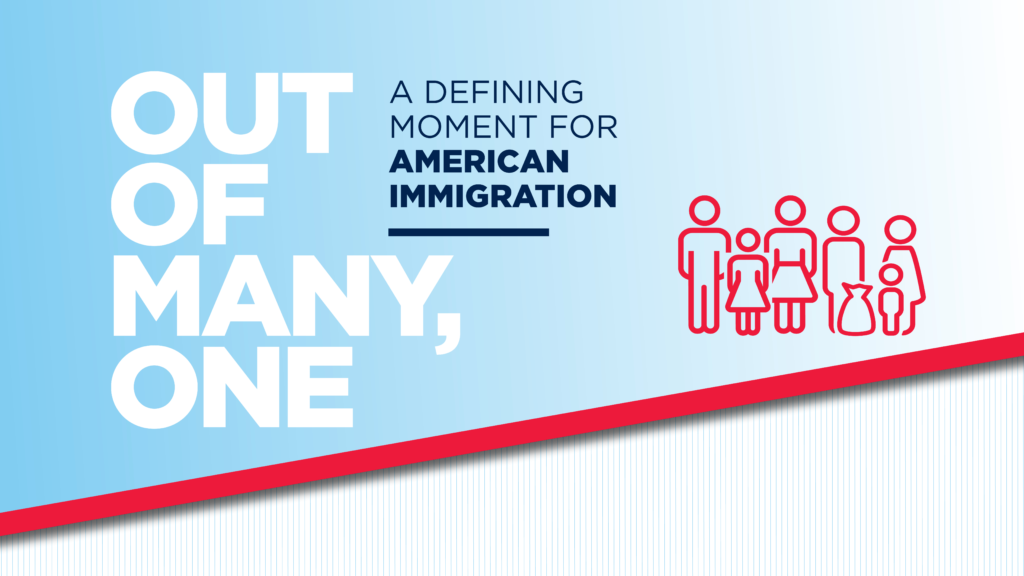Corpus Christi resembles a demographic version of America we may see in the decades ahead. Over 60 percent of the city is Hispanic, but just under 9 percent of the overall population is foreign-born.[1] Participants in the Corpus Christi conversation were as diverse as the city, conservative-leaning and appreciative of the immigrant community’s contribution and relationship to Mexico. But they also were wary of unauthorized immigration. The engaging discussion turned tense at times. Attendees were later asked what type of immigration system they would like to see. An older white man, who had voiced skepticism of immigration throughout the conversation, said he wanted a system that is “tough but fair.”
That seems reasonable.
The challenge is to articulate a practical and moral argument — in a global context — that is sensitive to millions of conservative and moderate Americans who appropriately ponder the cultural and economic changes they see around them and what these changes mean for them, their families and their communities. This challenge traces back to concerns about identity vis-a-vis culture, the economy, and security. Only when we successfully assuage people’s fears on these three issues, and peg each of them to the widespread benefits that immigration offers, will we be able to accomplish long overdue policy reforms.
Those reforms fall along three lines around which consensus can supplant fear.
- First, our legal immigration system needs to be modernized and strategically expanded so that it serves the needs of America’s economy and workforce, and helps all Americans thrive.
- Second, we need a system that protects the country’s borders and ports of entry, and keeps out of our country those who would do us harm, but at the same time upholds the country’s values, principles, and moral authority.
- Third, we need to create an opportunity for undocumented men and women already here working, studying, and contributing to earn legal residency and eventual citizenship.
These are straightforward solutions caught in what seems to be an impossible situation. How do we communicate them to an American public that, in the words of a recent Washington Post headline, “want the anger to stop but can’t stop being angry”? [2]
Journalist Amanda Ripley offers sage advice:
“The lesson for journalists (or anyone) working amidst intractable conflict: complicate the narrative. First, complexity leads to a fuller, more accurate story. Secondly, it boosts the odds that your work will matter — particularly if it is about a polarizing issue. When people encounter complexity, they become more curious and less closed off to new information. They listen, in other words.” [3]
It is important but not enough to continue to tell all Americans that immigration has always been central to our nation and that immigrants have powered what has become the most dynamic and entrepreneurial economy in the world.
We must continue to listen to people with valid concerns, especially those whose communities are changing rapidly. We need to engage with them and find common ground around the notion that we’re all striving for the same thing, no matter where we come from. Our conversations revealed that everyone shares a common dream to provide for themselves and their family, a common patriotism, and, as a result, a common American identity.
Continue reading part 5: Reasons for Optimism
***
[1] United States Census Bureau, “QuickFacts, Corpus Christi city, Texas,” accessed October 1, 2018, https://www.census.gov/quickfacts/corpuschristicitytexas.
[2] Greg Jaffe, “American paradox: Voters want the anger to stop but can’t stop being angry,” Washington Post, September 16, 2018, accessed October 1, 2018, https://www.washingtonpost.com/politics/americas-anger-paradox/2018/09/11/2bc9af7e-b231-11e8-aed9-001309990777_story.html.
[3] Amanda Ripley, “Complicating the Narratives,” The Whole Story (Solutions Journalism Network, June 27, 2018, accessed October 1, 2018, https://thewholestory.solutionsjournalism.org/complicating-the-narratives-b91ea06ddf63.



